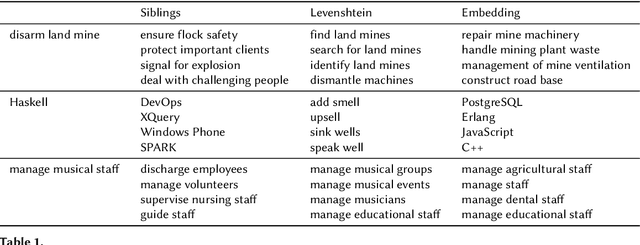Design of Negative Sampling Strategies for Distantly Supervised Skill Extraction
Paper and Code
Sep 13, 2022



Skills play a central role in the job market and many human resources (HR) processes. In the wake of other digital experiences, today's online job market has candidates expecting to see the right opportunities based on their skill set. Similarly, enterprises increasingly need to use data to guarantee that the skills within their workforce remain future-proof. However, structured information about skills is often missing, and processes building on self- or manager-assessment have shown to struggle with issues around adoption, completeness, and freshness of the resulting data. Extracting skills is a highly challenging task, given the many thousands of possible skill labels mentioned either explicitly or merely described implicitly and the lack of finely annotated training corpora. Previous work on skill extraction overly simplifies the task to an explicit entity detection task or builds on manually annotated training data that would be infeasible if applied to a complete vocabulary of skills. We propose an end-to-end system for skill extraction, based on distant supervision through literal matching. We propose and evaluate several negative sampling strategies, tuned on a small validation dataset, to improve the generalization of skill extraction towards implicitly mentioned skills, despite the lack of such implicit skills in the distantly supervised data. We observe that using the ESCO taxonomy to select negative examples from related skills yields the biggest improvements, and combining three different strategies in one model further increases the performance, up to 8 percentage points in RP@5. We introduce a manually annotated evaluation benchmark for skill extraction based on the ESCO taxonomy, on which we validate our models. We release the benchmark dataset for research purposes to stimulate further research on the task.
 Add to Chrome
Add to Chrome Add to Firefox
Add to Firefox Add to Edge
Add to Edge